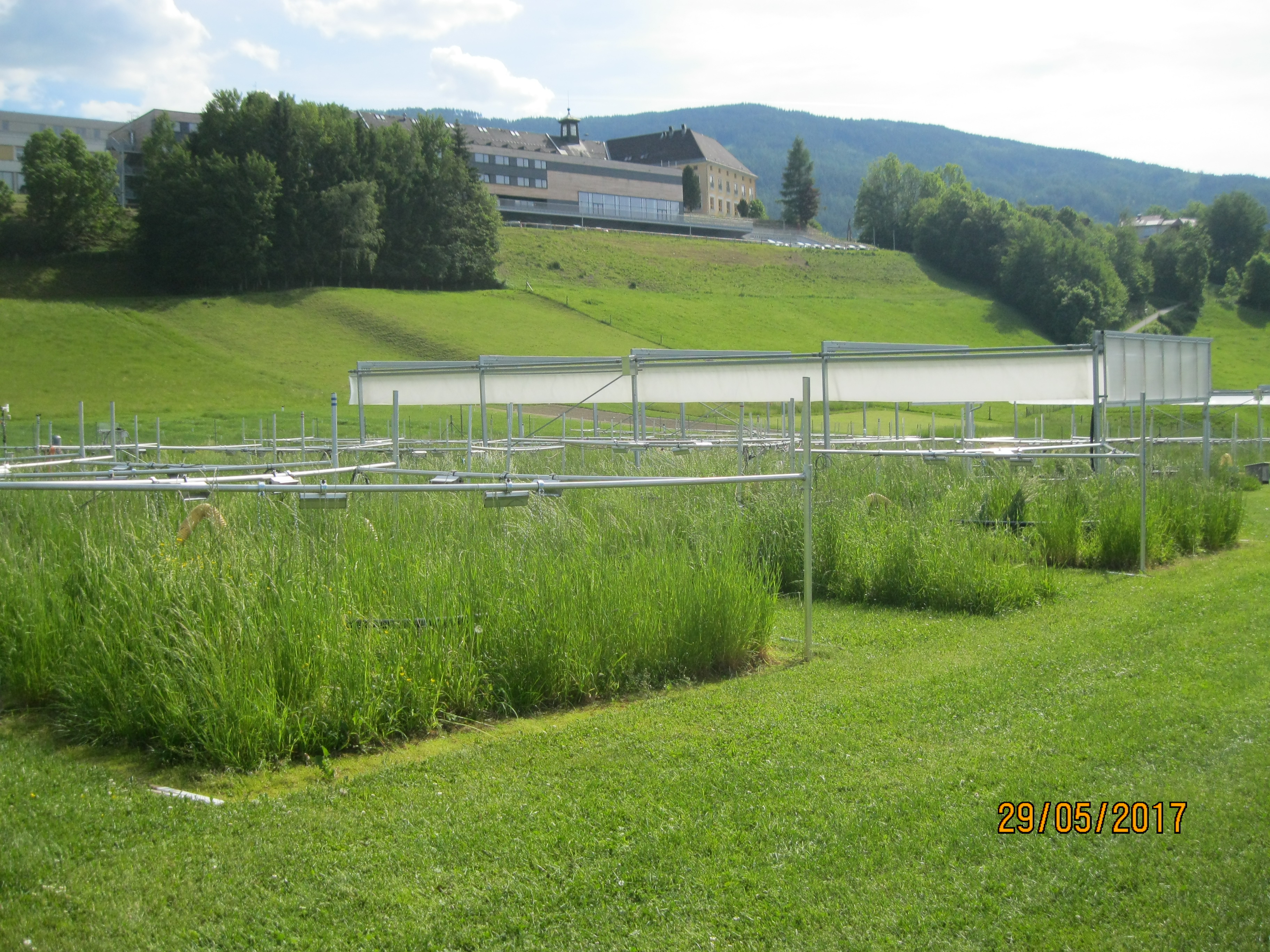Research
Overview
My current work lays at the interface between microbial ecology and soil biogeochemistry. I integrate classic soil science techniques and stable isotopes with cutting-the-edge molecular tools in order to investigate the role of soil microbes in determining the cycling of key elements for terrestrial ecosystem, with a key focus on carbon and nitrogen. I am particularly focused on extreme events, especially drought, for a number of different reasons. Drought are predicted to increase globally and significantly shape ecological communities.Stress events refer to environmental conditions that deviate considerably from the ecological optimum and significantly impair species’ performance or functions. Understanding how ecosystems respond to ecological stressors in space and time is a fundamental tenet in ecology and evolutionary biology. My research also investigate other climate change factors and environmental stress, such as nutrient deficiency.

Picture of field sites manipulating drought events
Why soil and soil microbes?
Soil has the highest biodiversity on earth and is a huge reservoir of terrestrial carbon, holding an estimated 1500 GT of organic matter to 1 m depth worldwide. Any reduction in soil carbon stocks due to climate change can introduce strong positive feedbacks through increased CO2 emission into the atmosphere. Soil microbial communities represent a major research area in the context of climate change. They regulate important biogeochemical functions, including major carbon fluxes from/to the atmosphere and the availability of nutrients necessary for plant growth.The magnitude and direction of potential soil feedbacks to climate change depend on soil organisms. For example, both soil organic matter formation and decomposition are mediated by the growth, turnover and carbon use efficiency of soil microorganisms. The respiration by heterotrophic soil organisms is responsible for a CO2 flux of around 60 Gt C per year (around 6 times anthropogenic emissions!!!) from soils to the atmosphere, while autotrophic soil organisms are largely responsible for the production and uptake of the greenhouse gases nitrous oxide and methane. Soil organisms are thus at the very center of understanding the interaction between soil and climate change. The drought resistance of soil microbial functions depends on the composition of the respective soil microbial communities. Emerging theoretical framework suggests that in short to medium time frames (years to decades), terrestrial ecosystem processes under recurrent extreme climate disturbances are likely driven by the responses of soil microbial communities. This relates to their enormous diversity and the divergence in timescales for ecological and evolutionary adaptation of microbes compared to larger organisms to recurrent stress events. Given the implications for the global climate, studying soil microbes is at the core of global change research.

What do we do?
The main goal of my research is to understand the effect of changing environmental conditions on fundamental biogeochemical mechanisms that control the fate of important elements in terrestrial ecosystems. The majority of our work is focused on field experiments, but also in controlled settings where we investigate : i) the effects of climate change (drought, warming and elevated atmospheric CO2) on key soil microbial functions (microbial growth and activity, nutrient fluxes); ii) carbon and nutrient exchange between plant and microbe at the rhizosphere; and iii) method developments linking chemistry and microbiology.
We also collaborate on several side projects, and new ideas jump-start in the lab anytime. In the Projects tab you’ll find a list of present and past project, for which I am/was (Co)-PI or to which I participated as named collaborator. Contact me in case you are interested in having more info!
Soon I will open my lab to carry an ERC Starting Grant project, and I will upload pages specific to my laboratory capabilities and field sites. Check back in the new few months for updates.

